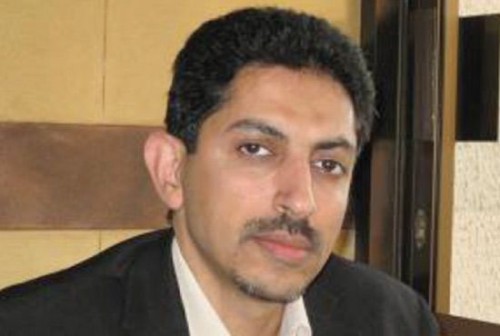In 2011, Abdulhadi al-Khawaja, a prominent Bahraini-Danish human rights defender, was arrested for advocating for civil and political freedoms in Bahrain. He was convicted under an emergency royal decree issued in response to widespread protests against the regime that year. The royal decree, entitled “State of National Safety”, enables authorities to prosecute individuals for any ‘crime’ threatening the state of national safety. While the rights for freedom of expression and association are included in the Bahraini constitution, the judges ruled that those provisions “are not applicable in themselves,” and that the emergency decree overrides these laws.
As a result, Abudlhadi al-Khawaja was given a life sentence for “advocating the overthrow of the regime, a willingness to sacrifice, disobedience, a general strike, and marches”. Prosecutors also charged that al-Khawaja “organized and managed a terrorist organization”, “insulted the army”, and “impugned the integrity of the judiciary”. During his 13-year imprisonment, Bahraini authorities have repeatedly tortured al-Khawaja in the notorious Jau prison, prompting him to undertake numerous hunger strikes to protest the inhumane and degrading treatment.
Al-Khawaja’s imprisonment spurred his daughter, Maryam al-Khawaja, to spend the past decade campaigning for his release. Her efforts have primarily targeted the Danish government and the European Union (EU), criticizing them for their inadequate response to Bahrain’s human rights abuses and insufficient pressure on the Bahraini government. While the Danish government has used its platform in the EU to support resolutions denouncing Bahrain’s human rights abuses and intervened in the UN Human Rights Council to call for al-Khawaja’s release, these actions have simply not been enough to grant his release nor improve the conditions of his detainment. The Danish Foreign Minister Lars Lykke has also publicly stated that after speaking with Bahrain’s foreign minister, he was not optimistic about the outcome of this case. Furthermore, EU member states have been even more reluctant to support the cause by failing to support Denmark’s calls for collective action against Bahrain and refusing to make al-Khawaja’s case an “EU case”. The EU member states, including Denmark, have therefore not done enough.
On 15 December 2022, the European Parliament overwhelmingly adopted a draft resolution calling on Bahrain to immediately and unconditionally release human rights defender Abdulhadi Al-Khawaja and all other political prisoners, end all forms of torture, cancel all execution sentences, and abolish the death penalty once and for all. However, Bahrain’s Foreign Ministry refused to comply with the resolution, saying it was based on false information, claiming that Al-Khawaja was accused of treason and attempting to overthrow the regime.
Nevertheless, the decision was an important political variable for the Gulf state, which aspires to cooperate with the European Union. However, the lack of an implementation mechanism and executive measures prevented its effectiveness, given that some of the European Parliament’s resolutions are binding on the countries or entities to which they are addressed, and are directly applicable.
This situation raises the question: why have the EU and Denmark not done more to secure his release and improve the conditions of his detainment by pressuring the Bahraini government? After all, Al-Khawaja, who is half Danish, spent many years in Denmark on political asylum, embracing democratic values of freedom of expression and peaceful protest—values the EU itself preaches itself on promoting and protecting. The primary reason lies in economic interests. Bahrain is a strategic partner in the Gulf region, and the EU and its member states are reluctant to strain relations by pressuring Bahrain. This ultimately means that EU member states have been prioritizing economic prosperity over fundamental human rights and freedoms, which is troubling at best.
The EU member states, including Denmark, must do better. Denmark should work closely with Al-Khawaja’s family to develop a new strategy, organize private visits with him in prison, and push the EU to take action to protect his rights as an EU citizen. The Danish government and the EU must also press the Bahraini government for al-Khawaja’s immediate and unconditional release, demanding tangible action from Bahrain to protect his human rights and imposing sanctions if they do not comply. It is high time to address the EU’s impunity in these matters, which starkly contrasts with their core values.





